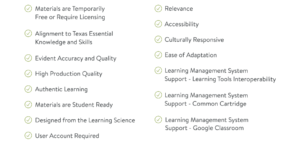The Growing Need for Online Teachers

Spring in California delivers vibrant colors after a long, gray winter. Teachers welcome them all—except pink.
First- and second-year teachers, affectionately known as “probes” (for probationary), receive notice of termination from their employers on or before March 15. Appropriately, it is called Pink Slip Day. This bureaucratic strategy serves as advanced preparation for budget cuts that may follow when the state begins to disburse funding later in the year.
Readers of this blog series are aware that I am a first-year teacher due to the simple fact that I took a 15-year hiatus from the classroom to assume executive positions in two national non-profits (the Partnership for 21st Century Learning and the Buck Institute for Education (now PBLWorks). My 11 years of classroom experience provide no shelter.
The California Teachers Association (CTA) estimates that between the years of 2008 and 2012 more than 100,000 teachers received pink slips. According to the Legislative Analyst’s Office and the CTA, more than 1,700 teachers received pink slips in 2017, the most recent year I could find data for. This process is so entrenched that the California union has produced a guide called A Layoff Survival Guide For CTA Members.
In 2020, the distress of this annual ritual is enhanced by the arrival of COVID-19. The potential reality of incipient unemployment is made real by the indefinite closure of schools.
Not one to waste time, I have already begun the search for new employment. I haven’t had to look far. Remarkably, new jobs are coming to me via unsolicited emails.
The nation, actually the world, has developed a dramatic and urgent need for online teachers. This opportunity for expansion has not gone unnoticed by technology companies. In the last two days I have received multiple offers to apply at companies that are eager to hire me.
Outschool is a platform that allows teachers to offer classes they’ve designed themselves to small groups of paying students via online video chat (Zoom, usually). The company states that over 80,000 K-12 students have taken more than 300,000 live class hours of its content. Because of the current crisis, Outschool is offering these classes for free. Accordingly, it wants to hire 5,000 teachers in the next two weeks to deliver content online that could earn up to $40 per hour. So I applied.
The process begins easily enough with the usual questions about experience, education, credentials, and expertise. Where I bogged down was in the section of the application that required me to create a teacher profile that includes an About Me section and an introductory video. In the next section of the application I was asked to create a catchy course title as well as a highly detailed course outline and syllabus. Remarkably, you are even given the option of choosing your own hourly rate.
The thought of teaching the subjects I enjoy to engaged students who pay for access to my expertise is deeply gratifying. I will begin to write the course description and create related documents, but to a perfectionist like me this is a time-consuming task.
At nearly the same time, I received an email from Numerade, an ed-tech startup based in Los Angeles that delivers STEM-related content to students. Speaking of numbers, the company states that its platform provides answers to 200,000 textbook-based questions and problems; fields a team of more than 1,000 expert teachers with advanced degrees; and has provided instruction to more than 1,000,000 learners.
Numerade is looking for teachers with spare time on their hands (a big pool to choose from at the moment) to create STEM content. Teachers select a math textbook they’re comfortable with and then solve problems from the book using a virtual whiteboard.
Not surprisingly, you have to pass a competency test, which requires you to complete a question/problem the company assigns you. If you pass you are offered a contract that can pay between $20 to $60 per hour. Since there is zero chance of me passing this test, I declined the offer to apply.
During the crisis, Numerade is offering its content free of charge to teachers and students.
Intrigued by the possibility of new work, I went fishing. K12 Inc. is a for-profit education company that provides online schooling to a large user base. I figured that if anyone was hiring it would be them. I didn’t find anything specifically related to an employment push other than the standard notice that it is “actively hiring for new positions daily.”
When I was working in Washington for P21 I liked to meet with thought leaders who offered insights into what was happening in education. One of my favorites was Mike Trucano, who writes a thoughtful blog on education and technology for the World Bank. Mike wrote a prescient blog in 2014, talking about tipping points that would drive broader adoption of educational technology.
Trucano described the effect of the SARS epidemic on China’s education system, which was forced into developing new forms of distance learning. Six years later, COVID-19 is less a tipping point and more the “black swan” event popularized by finance professor Nassim Nicholas Taleb in his 2007 book The Black Swan: The Impact Of The Highly Improbable.
COVID-19 will surely mark a dramatic change in the teaching practices of me and many of my colleagues. Year 2 of this blog series may be focused less on my return to the classroom and more on the brave new world of online K-12 education.
Getting Smart has launched the Getting Through series to support educators, leaders, and families on the path forward during such an uncertain time. This series will provide resources and inspiration as we face long term school closures, new learning environments, and address equity and access from a new lens. Whether you are just getting started with distance or online learning, or you’ve had plans in place and have the opportunity to share your work and guidance with others, there is a place for your voice and an opportunity to learn.
We’re going to get through this together, and we invite you to join us. Please email [email protected] with any questions or content you’d like considered for publication. We also invite you to join the conversation on social media using #GettingThrough.
For more, see:
- Conronavirus Offers Teachable Moments and Wakeup Call for All Schools
- On the Move to Online Learning
- Getting Through: Leading Through And To A New Generation Of Learning Systems
Stay in-the-know with innovations in learning by signing up for the weekly Smart Update. This post includes mentions of a Getting Smart partner. For a full list of partners, affiliate organizations and all other disclosures, please see our Partner page.
David will be chronicling his return to the classroom in a monthly series of blogs. Follow along.








0 Comments
Leave a Comment
Your email address will not be published. All fields are required.